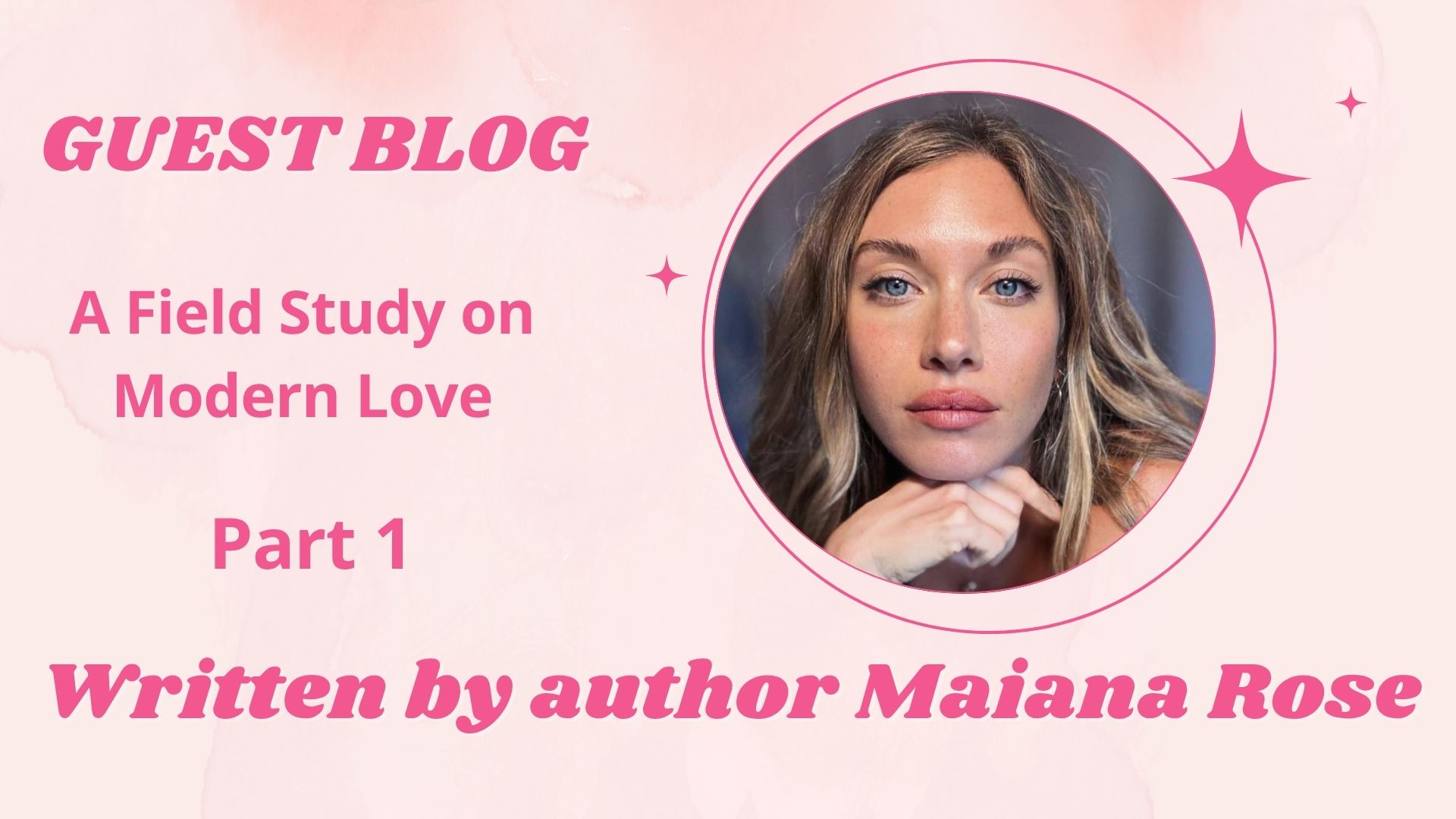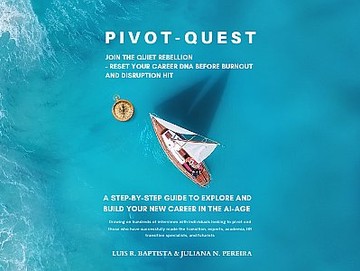A Field Study on Modern Love: Part 1
Single AF.... but Not Jaded: Can We Fix Dating?
by Maiana Rose
As much as I adore Sex and the City, I never wanted to be Carrie Bradshaw. Well let me backtrack, her closet and apartment, I would take any day, but her love life? Not exactly goals. And yet, this summer I found myself having a very Carrie B. moment.
To paint the scene for you, I came to New York City specifically to promote my second Illustrated book, Oh The Dudes That You'll Date!, a parody on modern dating. Fully equipped with a Book Launch in Soho, a Times Square billboard, and a calendar full of events, all while lugging around a 20-pound corgi who “prefers” not to walk (shout out to Moschino for making this a fashion statement). And instead of minolos (a-la-carrie) I’m in black moto-cowboy boots, wandering around Brooklyn, wondering how the hell we’re supposed to fall in love in this (really hot) mess.
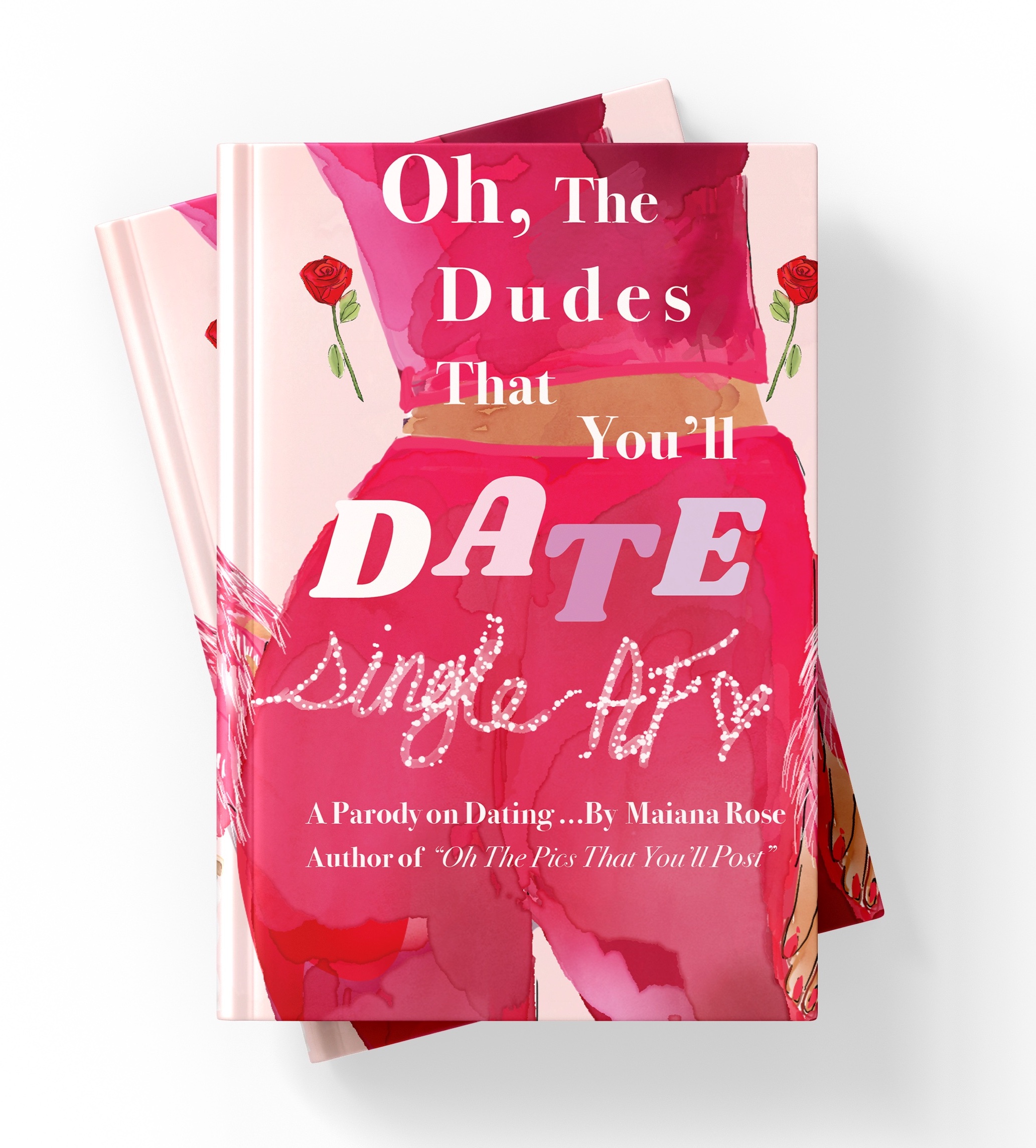 Because for all the fun I’ve had turning my chaotic dating life into rhymes, I keep circling back to the same question: Is something seriously wrong with my choices, or are we all just trapped in a dating apocalypse of endless swipes, breadcrumbing, and red flags? And now I hear Gen Z is just not even hooking up?… yikes.
Because for all the fun I’ve had turning my chaotic dating life into rhymes, I keep circling back to the same question: Is something seriously wrong with my choices, or are we all just trapped in a dating apocalypse of endless swipes, breadcrumbing, and red flags? And now I hear Gen Z is just not even hooking up?… yikes.
I’d heard plenty of horror stories about dating in New York, but coming from Los Angeles, I wasn’t convinced it could possibly be worse. Admittedly, I tested the waters—and yes, it tracked about the same. But what interests me isn’t which city is worse. It’s why everyone, in their respective cities, seems to claim the dating scene is the worst. It has to be something generational, geographic, or cultural. Somewhere along the way, we lost the plot on connection and romance.
In the foreword of my book, I jokingly refer to myself as a dating anthropologist, because I’ve done the “field 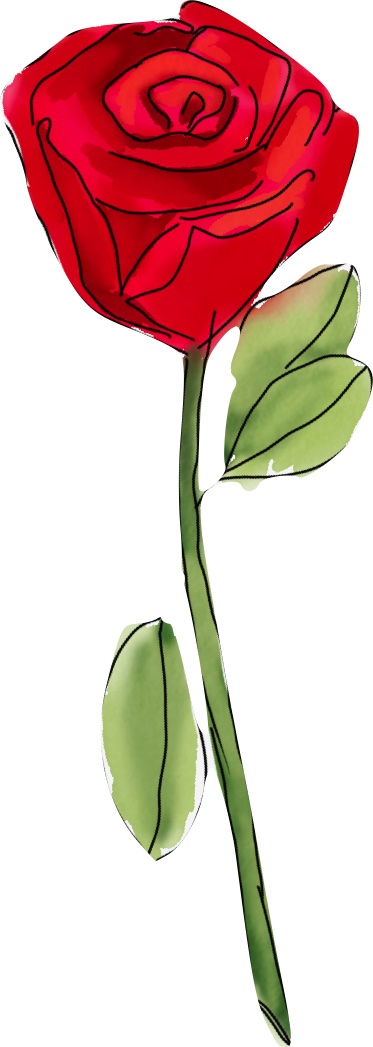 work.” A.k.a., I’ve dated a lot… (though I actually did focus on Anthropology in college). So after lifting my head from a manuscript I’d been crafting for years, which culminates with a message for self improvement ultimately, I was inspired to explore the issues beyond “the journey to self love”…because you can love and value yourself all you want…and dating can still suck.
work.” A.k.a., I’ve dated a lot… (though I actually did focus on Anthropology in college). So after lifting my head from a manuscript I’d been crafting for years, which culminates with a message for self improvement ultimately, I was inspired to explore the issues beyond “the journey to self love”…because you can love and value yourself all you want…and dating can still suck.
I figured it was about time to live up to my self proclaimed “anthropologist” title and conduct a light field study. My publisher and I cast a net to some NYC dating experts and invited them to join me for a roundtable discussion to explore themes I’d been mulling over. It was my chance to do real boots-on-the-ground research without having to dive back into the pool of dates and ending up in yet another confusing situationship.
We gathered at Pietro Nolita, an iconic Italian eatery and bar in Nolita…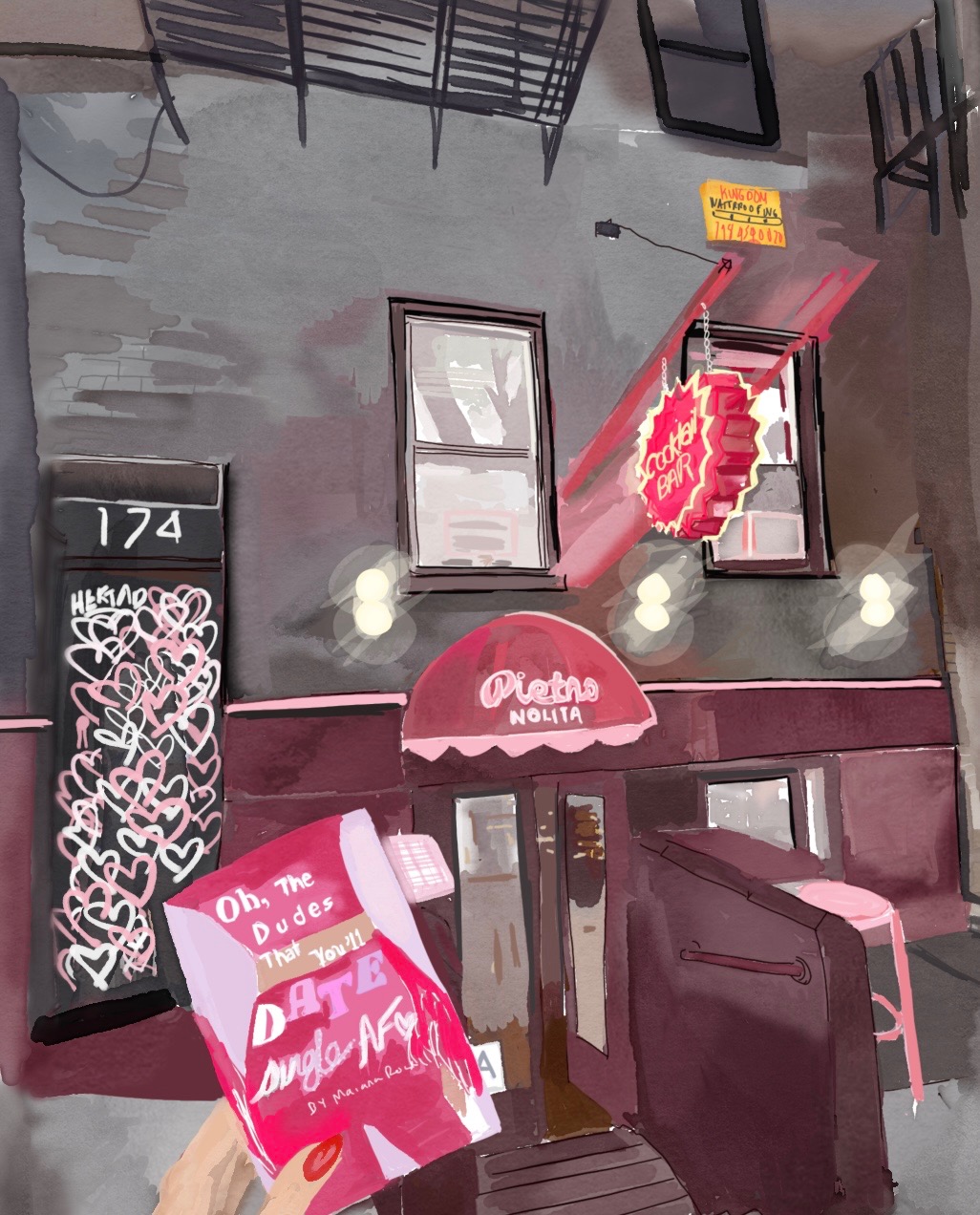
Among the guests were a Founder and creative director of a new dating app called Cerca (a network-based dating app promoting meeting through friends), and Jay, founder of an OG speed-dating event series, called “Weekend Dating” which he has been leading for the past 20 years. What followed was an extremely interesting meeting of the minds, and generations.
The Problem with “Looking for Love” in 2025

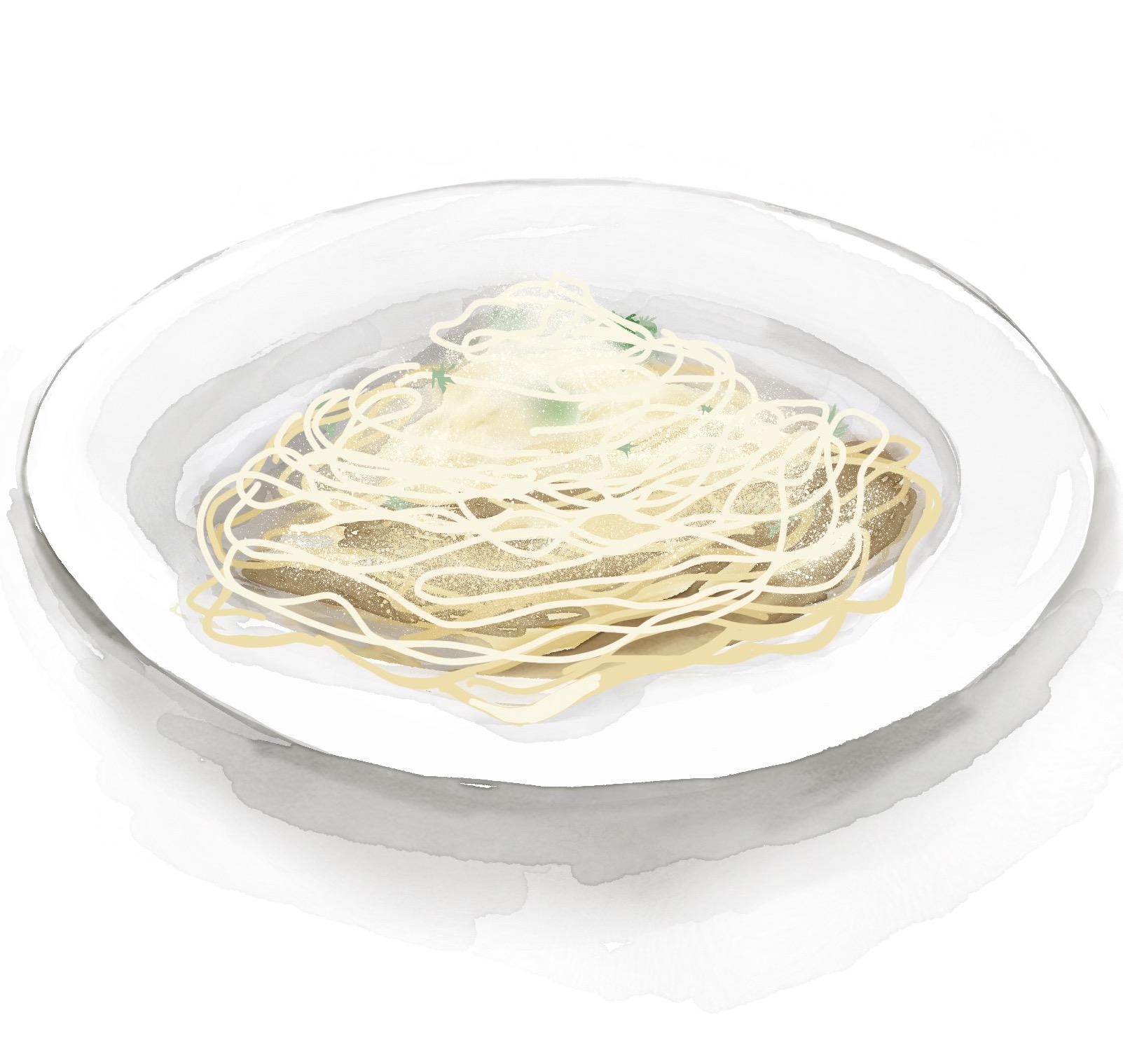
I wanted to get into the minds of my dinner guests to explore the broader dilemma of Love in 2025. In my experience, nearly six years since I joined my first dating app, I've learned it's best not to make assumptions, or push any agenda too soon. And I was curious to know if openly admitting you’re “looking for love” is now considered cringe? Especially on dating apps, where expectations tend to be murky. So I posed the question to my roundtable
“Is it risky to admit upfront that you're looking for something serious? Should we be keeping those cards a little closer to the chest?”
At first, the answer was a clear no, of course it’s not cringe to admit you’re looking for love. However, in further consideration, the question sunk in, and Myles Slayton, co-founder of Cerca then conceded: “Yeah, I think to most people, it looks desperate…but it shouldn’t—because of how bad it’s gotten.” He also shared that while he is not actively looking for love, he is open if someone comes along.
Two single women in their early 30s sitting at a table nearby, gladly shared their opinions on the matter as well (we love crowd sourcing!) “Dating in 2025 is…confusing because you never really know someone’s intentions or what they are looking for” Another one said: “There is a lot of nonchalantness these days, a lot of people don’t want something serious…I mean neither do I”.
Maybe this proves my point…Sincerity has become a liability. Recent reporting (NY Post, May 2025) The Headline states: Gen Z daters are ‘terrified’ of being ‘cringe’ — and that’s why so many are single, experts says ‘You can get away with being ugly’
As if the headline alone doesn’t say it all, a quote from the article couldn’t further prove my point…”Brooklyn resident Anabelle Williams, 25, told Wired that the idea of someone stating what they’re looking for outright is 'embarrassing.'”
Even the dating apps themselves sound a little desperate. Take Bumble’s “Celibacy is not the answer” campaign, pulled after backlash; Hinge’s “Designed to be deleted” strategy, clever but still app-centric; and Tawkify’s “Not another dating app” tagline—which, ironically, feels like just another dating app.
It’s all starting to sound a little desperate. And maybe that’s exactly the point.
Why Cerca Feels Different (this is not an ad)
Among the new players aiming to shift the game, Cerca stands out. Launched in March 2025, it roots your dating life in people you already know or at least someone your friend knows. Before connecting with them, I had actually noted some of their advertisements around Manhattan: An image of a happy couple on vacation, with text that reads: “Dating your friend’s friend looks like”.
It’s subtle but subversive: love isn’t embarrassing here. It’s possible. It’s accountable. And maybe, just maybe, it’s someone you just haven’t met who is in your circle.
I asked Myles about the narrative that dating apps want to keep you scrolling endlessly. He corrected me: “One successful match, who leaves the app, has way more value than keeping someone on it without a connection.” From a marketer’s perspective, this is reassuring. “Getting people off the app because they met someone is the win,” Myles added. Like Cerca, maybe a new wave of dating apps, that recognize what builds a real connection, over what is meant for a hookup, may help course correct some of this mess.
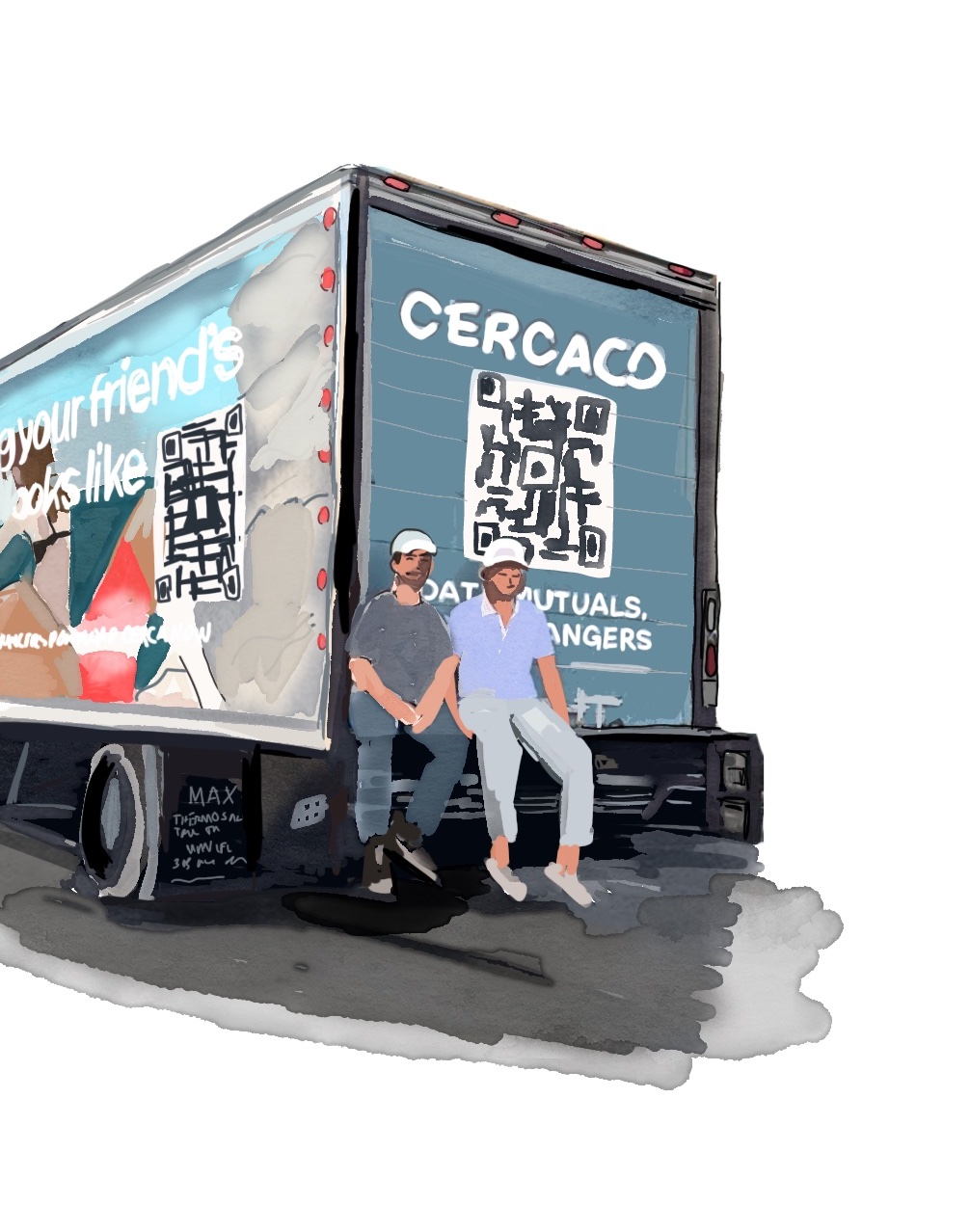
It’s also refreshing to see Myles and Campbell, both fresh out of college, passionate about helping their own generation to start making connections IRL again. Who better to understand the Gen Z mindset when it comes to dating than Gen Z’ers themselves.
As far as the meeting mutuals’ angle goes, I think there is really a brilliance to cutting through the challenges that come with dating a complete stranger. Even if that means seeing your ex on the platform. “Not everyone is going to congratulate you,” he said, smiling.
Which admittedly, is something I can relate to after releasing “Oh The Dudes That You’ll Date” - there were a few people who stayed pretty quiet.
Let’s Talk Speed Dating for a Moment
Let’s talk speed dating for a sec. My first thought: That’s a thing nowadays?! But seriously, as a millennial, I thought maybe it was something for boomers or beyond…along with “website dating” like Match.com or OK Cupid.
Also, I always felt like speed dating was the kind of thing you might do if you just really want to meet someone ASAP. Perhaps it's a snap judgement formed from the word association of “speed” being in the title.
That said, speaking with Jay was eye-opening. Meet Jay, (won’t disclose his age but he’s a boomer) and the host of NYC’s Weekend Dating, has been organizing IRL events since long before apps took over. His numbers speak for themselves: 88 couples. 16 kids. Countless first dates. And this is how he makes a full-time living, in NYC. Also he began the whole event series in the hopes that he would meet Mrs. Jay…something 20 yrs later he’s still hoping for.
The demographic of his events are between ages of 25 and 78. I mean, I was pretty shocked to hear how many young people were actually attending these. He even attested that young men, in their early 20’s are asking for speed dating events for a younger bracket. Is this Gen Z’s cry for help?
As Jay showed us endearing images of him with 20 couples on a reunion retreat, I must admit, I had to reconsider my own preconceived notions around speed dating. In reality, speed dating is the pre-app swipe. You sit, you talk, you move on. No ghosting. No delayed replies. Just a quick assessment.
And perhaps there is some brilliance to that.
At first the Cerca team seemed a bit disinterested, perhaps, like myself, that they had viewed speed dating being “dated” (pun intended). But as Jay laid it out, face-to-face energy, instant clarity, real-world chemistry, and success of actual matches, the mood shifted. Cerca founders even joked about being a sponsor of an event series…maybe not such a bad idea! They also suggested Jay get on their app to try to find Mrs. Jay. So sweet.
Still not sure If I would…I was curious whether Myles and Campbell would personally attend a speed dating event.
“Maybe if it were presented the right way,” said Campbell, Cerca’s Creative Director. “With a legit venue and a twist…”
It got me thinking. Maybe we don’t need to choose between IRL and online. Maybe the solution lies in hybrids: tech-enabled but human-centered, fast-paced but rooted in presence.
If the apps are broken and the bars are all over the place, maybe Jay’s 7-minute model is due for a renaissance. A renaissance with a twist of being mutual friends.
What’s Actually Missing From Dating?
It’s easy to say dating today lacks intentionality, but that word doesn't quite cover it. What’s really missing? Clarity? Honesty? Chemistry? A sense of purpose?
Campbell put it well: “There’s a difference between dating and being in a relationship. Sometimes you date just to learn about yourself; it has nothing to do with the other person.”
That idea came up again and again, dating as self-exploration.’ Accepting that it’s not always a search for “The One.”
Jay described a mindset he sees constantly with a lot of modern daters: "My take is that, nowadays everyone seems to have the 'next' mentality, so that's the problem with a lot of dating apps, you’re always waiting to see what is coming up next”
He’s currently leading one of his cohorts through a book review of, How to Not Die Alone, a book challenging the fantasy of “The One” and making a case for being open to enoughness. As opposed to seeing it as “settling”.
Of course, the idea of soulmates sparked perspective. Everyone agreed upon meant-to-be connections, soul mates, etc, but when it comes to the idea of “the one” we had a variety of responses. “I don’t think there’s one person for someone, There are multiple people for different chapters of your life.” Myles added.
While Campbell does believe in twin flames and is open to the idea of the one, she also admits that “Soulmates show up as mirrors…Sometimes in friends. Sometimes in people who help you grow.”
Then there’s the “I’d rather be single and left at peace” mentality…As our dinner table neighbors had put it so well: “I used to go out looking. Now if a guy doesn’t add to my life, I don’t have time.” The other single woman chimed in also 31, “I got out of a 5-year situationship with a man-child. Now, I’d rather be single and have peace than stay for longevity or society’s sake.”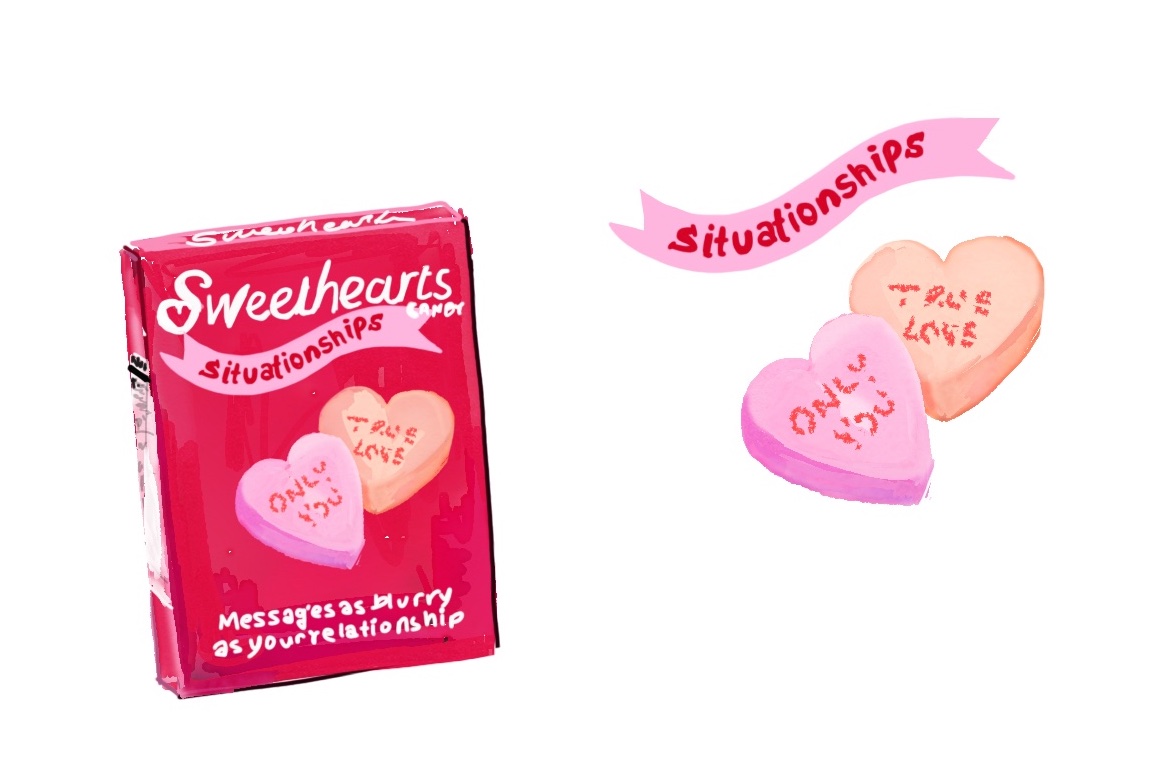
For many women, the bar isn’t just higher, it’s maybe healthier? Peace, not partnership, is the priority. Especially if “partnership” looks like emotional labor, nonchalance, or chronic inconsistency. Perhaps healthy, or non toxic yes…but isn’t that also kind of a pessimistic viewpoint on love and romance?
Lastly, I’ll mention very briefly, there is a culture of "conscious daters" where clarity and over-communication is the primary focus, and monogamy is not the norm. Perhaps just a personal opinion here, but I believe there is a downside to denouncing tradition entirely as well as leaving nothing to mystery or intrigue—it kind of ruins the experience. Note to self: more on this another time.
So… How Do We Fix It?
There’s no one answer, but here are a few of my personal takeaways and rambles.
-
How do we normalize wanting love, being vulnerable? It’s not cringe to want a connection. It’s human.
-
Redefine success in a modern context. Perhaps it's not about looking for the one, but for the one who fits in the phase you are in, and maybe that’s the same person through many phases, or different people. It’s not a one size fits all. I really appreciated what Campbell from Cerca said, “Find someone who gives you more access to feel things you want to feel, be it joy, playfulness…” As in, be present in your search for connection, make joy, peace, friendship, chemistry, honesty and trust at the top of your list.
-
Recognize dating IS a mirror. Even a “bad” or mismatched date can teach you about yourself. Sometimes you just need to date to start crafting a little bit of a “resume” just recognize you may not be going on every date to meet your life partner.
-
Kill the “next best thing” mindset. As Jay’s pointed out, the need to embrace enoughness is not synonymous with settling. As Jay explained the importance of recognizing the distinction between settling and simply not overanalyzing to your own detriment.
-
Build connections IRL, find community, find common interests, find common friends…try Cerca, or attend a speed dating event with Jay…I’m also not telling you not to be on the apps…I just think we need to admit what is not working, ditch the self judgment about wanting connection, and always prioritize your own joy and purpose first.
So We are Still Single AF—But Not Hopeless
What started as just a book geared to help people laugh at the ridiculousness that is dating today, now has led to an exploration, IRL, of modern love. How has the digital era of social media and dating apps impacted romance, and now, what is the course correction?
Despite the swipe fatigue, the avoidants, the chaos—most people still want love or authentic connection. However romance shouldn’t feel forced or pushed on us, it’s something that has to flourish naturally. That being said, if we aren't open to it anymore because we have normalized dating app dating culture, and treating people as disposable, or don’t even have a chance to meet people IRL, then perhaps we may not be creating or structuring lives that actually have space for romance. That’s where having some form of accountability, like dating a friend’s friend (a-la-cerca), or having a quick chance to meet eligible singles in person (a-la-Jay’s speed dating events, or even the NYC Run club that was actually a huge success) perhaps we can mitigate some of the issues that we face today. However, there’s a few lingering thoughts that I still don’t have a resolve for: people not wanting to settle, compromising for a relationship, and feeling trapped in a “the next best thing” mindset… which I totally get…I’ve been there. Perhaps there’s more to be explored…until next time.

Ciao 4 now, & good luck out there ; ) xoxoxo

